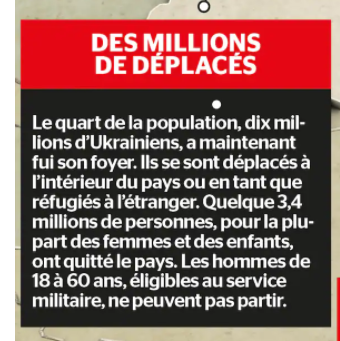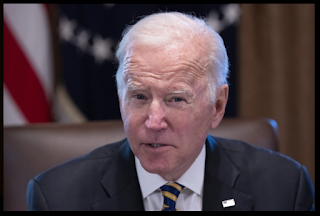source: AGENCE FRANCE-PRESSE in La Presse
author: PATRICK BAERT
translation: EdgeTranslate/doxa-louise
War in Ukraine: China and Russia discuss a new world order
Sergey Lavrov took advantage of a bilateral meeting in eastern China with his counterpart Wang Yi to announce the advent of the new world order dreamed of by the two countries. Above, the two men in September 2020.
(Beijing) A "more just" world order. Five weeks after the invasion of Ukraine, Russian Foreign Minister Sergey Lavrov on Wednesday obtained from his Chinese ally a reaffirmation of the "limitless" friendship of the two countries vis-à-vis the United States.
In the face of Ukrainian resistance and the unity of Western democracies, which have taken unprecedented sanctions against them, Russia can only rely on Chinese power to escape total economic isolation.
In this context, Sergey Lavrov took advantage of a bilateral meeting in eastern China with his counterpart Wang Yi to announce the advent of the new world order dreamed of by the two countries.
"We are living a very serious stage in the history of international relations," he said, in a video of the interview broadcast by Moscow.
"I am convinced that by the end of this stage, the international situation will be much clearer and that we [...] will advance towards a multipolar, just, democratic world order," he told his host.
"Sino-Russian relations have withstood the test of a changing the international situation," replied the latter, according to remarks reported by his ministry.
In a statement issued by Moscow, the two countries said they wanted to "continue deepening foreign policy coordination" and "expand joint action," but did not announce concrete measures that would support Russia.
"Opposed to hegemony"
Western powers have warned Beijing against any support for Russian President Vladimir Putin's regime that would allow Moscow to mitigate the impact of sanctions.
Chinese companies are cautious in their trade with Russia, for fear of being hit in turn by these sanctions.
Mr. Lavrov therefore had to settle for a reaffirmation of the unlimited nature of the friendship between the two countries in the face of the common American rival.
"Our opposition to hegemony is limitless," Chinese diplomatic spokesman Wang Wenbin said when asked about the Russian minister's visit.
Since February 24, Beijing has refused to condemn the invasion of Ukraine.
In early March, Wang Yi even hailed a "rock-solid" friendship with Moscow and defended Russia's "reasonable" concerns for its security.
A few weeks before the war, Vladimir Putin himself had been warmly received by his Chinese counterpart Xi Jinping in Beijing. The two countries had already celebrated a friendship "without limits" and denounced the "extension" of NATO.
The Afghan Question
Sergey Lavrov is scheduled to participate in two days of meetings on Afghanistan in China, during which he is expected to encounter an American diplomat.
Beijing and Moscow saw the departure of US forces from Kabul as evidence of America's weakening influence.
The meeting, held in Tunxi (east), in the greater Shanghai area, brings together seven countries neighbouring Afghanistan. The head of diplomacy of the Taliban in power in Kabul, Amir Khan Muttaqi, is also expected to attend, according to the China News Agency.
At the same time, a meeting of a "consultation mechanism" on Afghanistan is to be held, with the participation of diplomats from China, Russia, Pakistan, but also the United States.
According to a U.S. State Department spokesman, Washington's special representative for Afghanistan, Tom West, is scheduled to attend that meeting.
The meetings come a week after Wang Yi visited Kabul for the first time since Islamic fundamentalists came to power last August.
China shares a small border of 76 kilometers at very high altitude with Afghanistan.
Beijing has long feared that its neighbor could become a base for separatists and Islamists of the Uyghur ethnic group, the majority in its vast region of Xinjiang (Northwest).





























